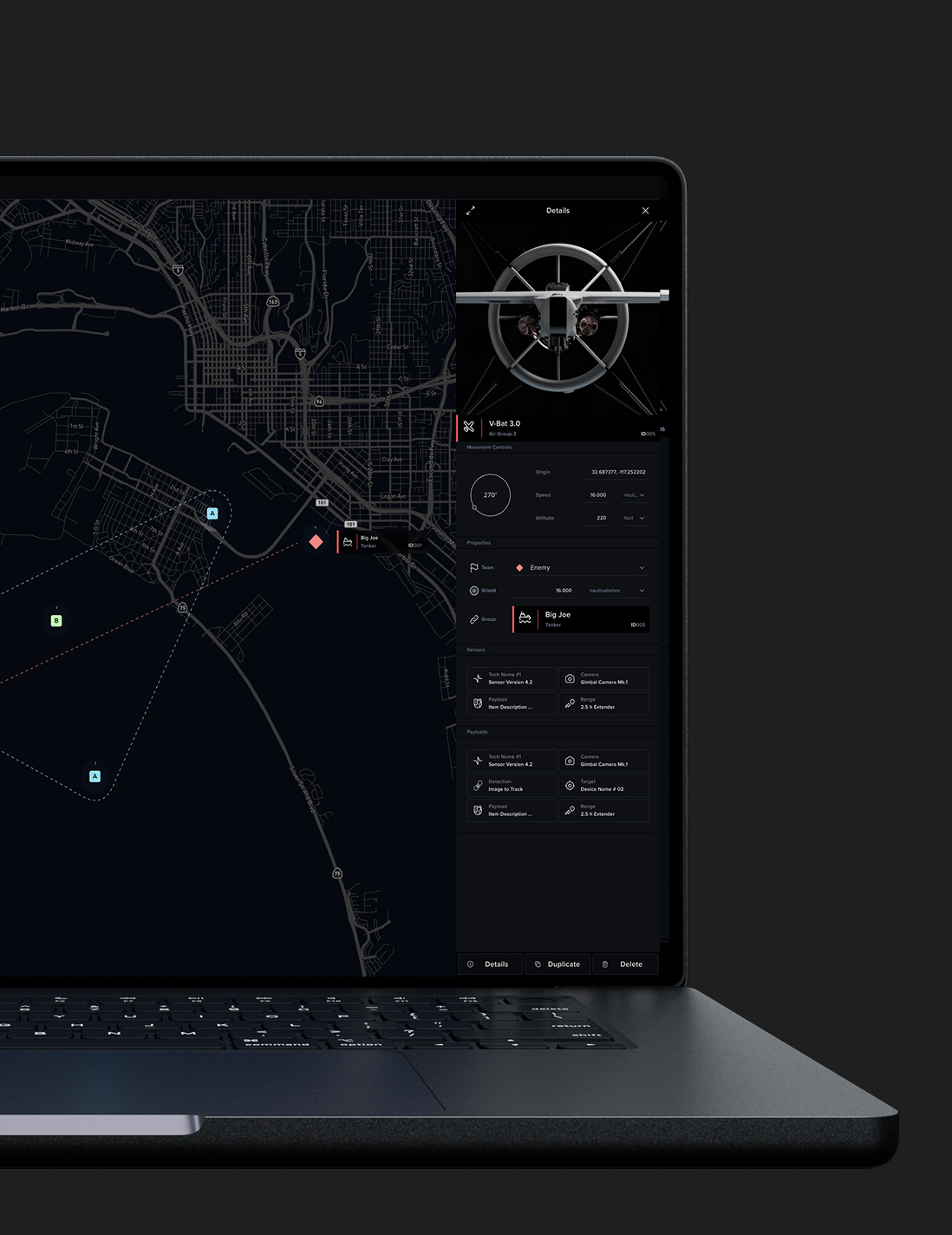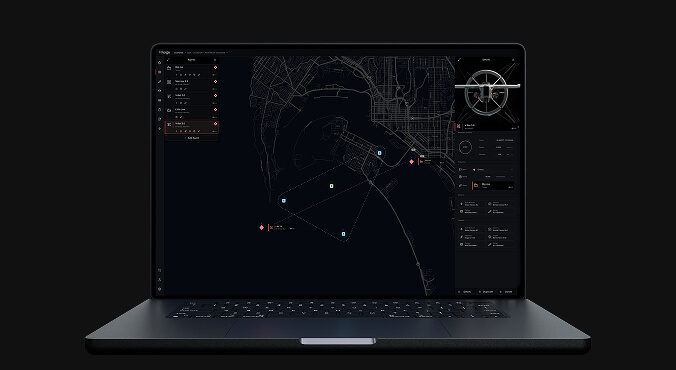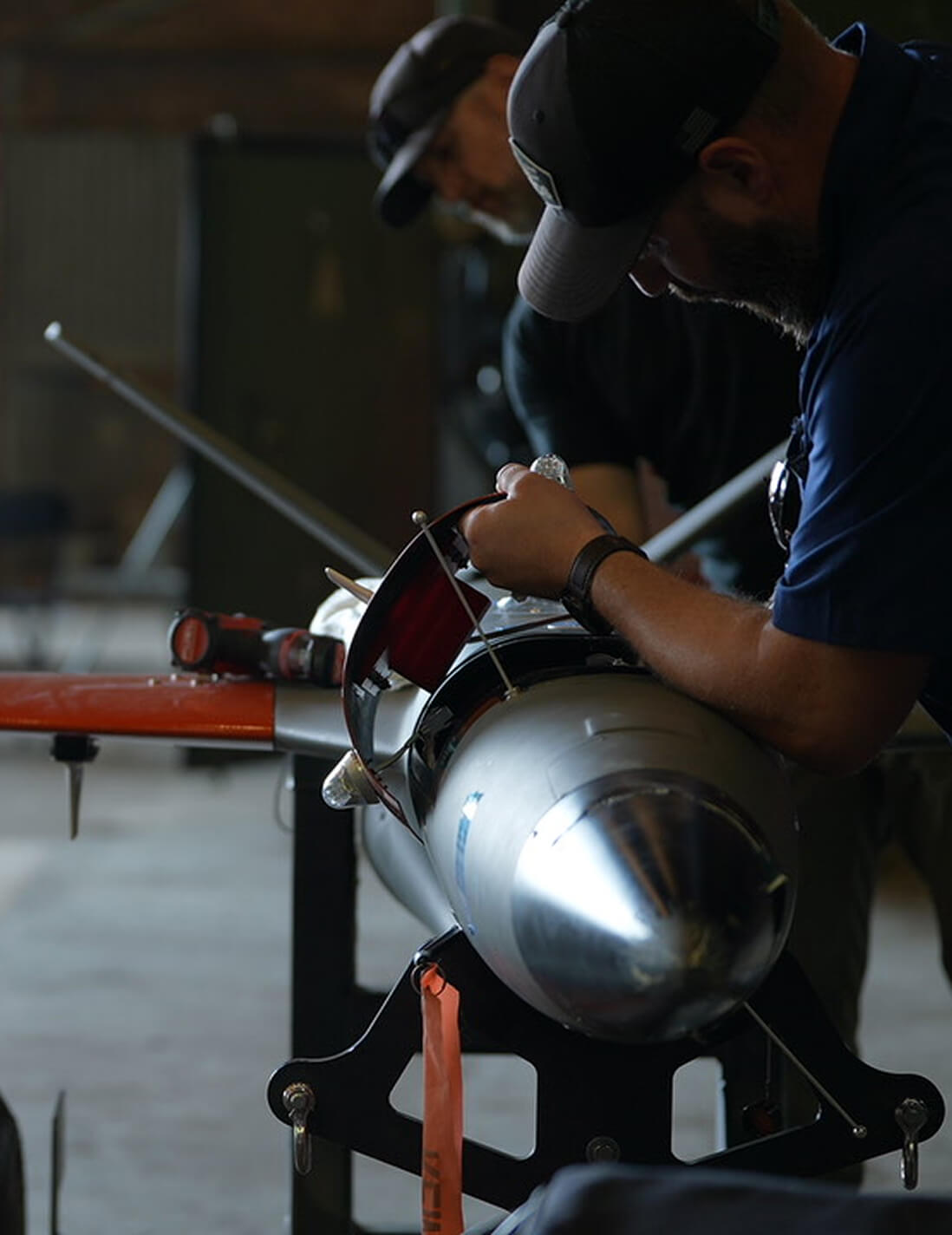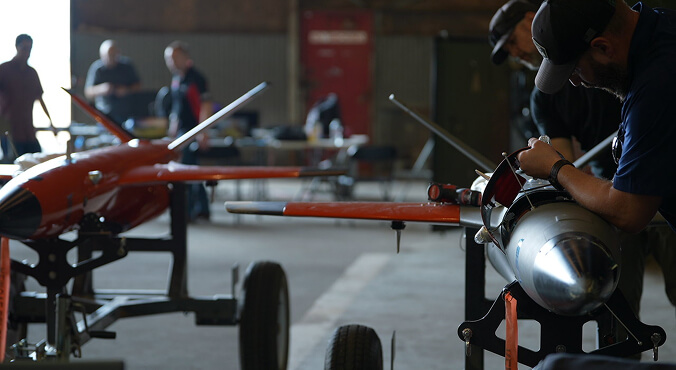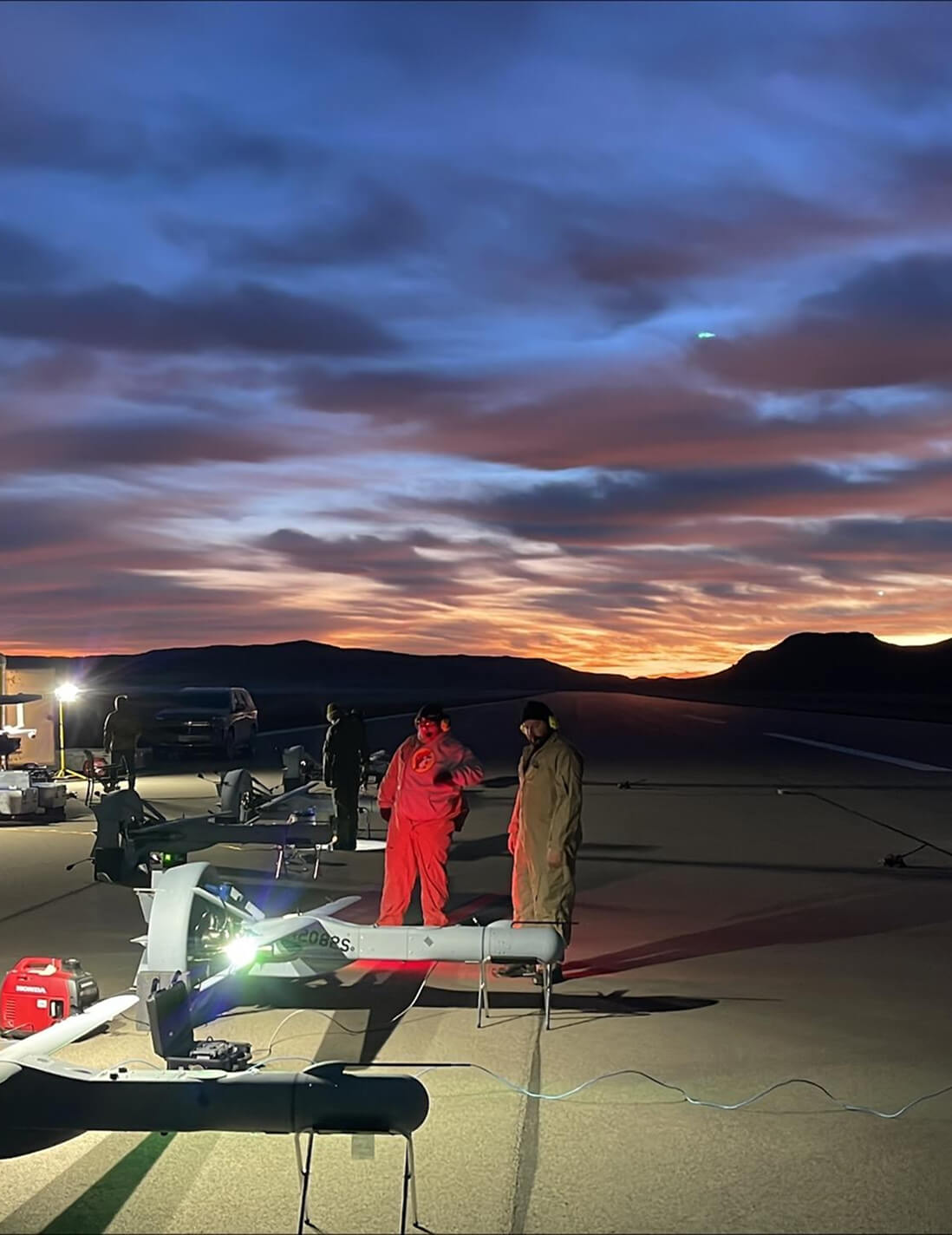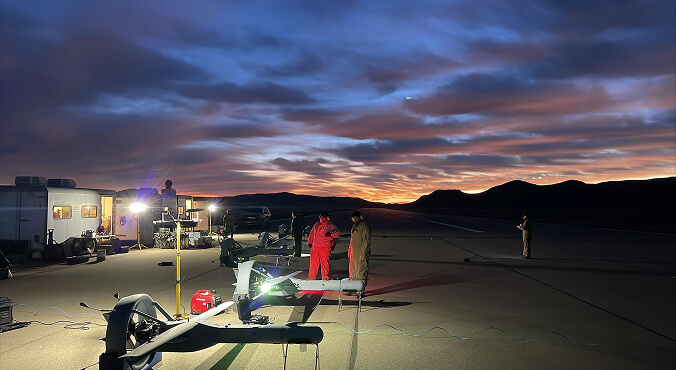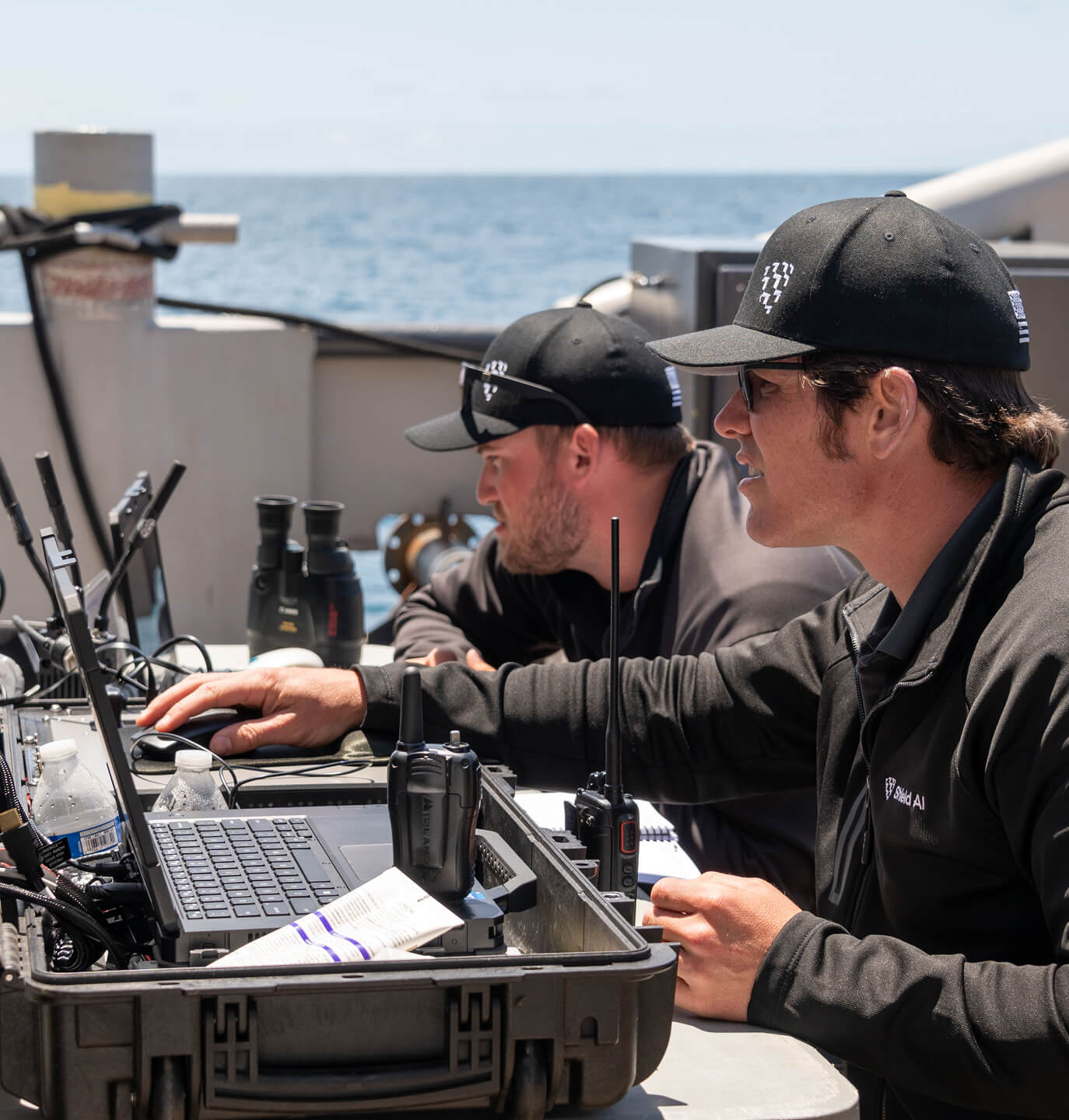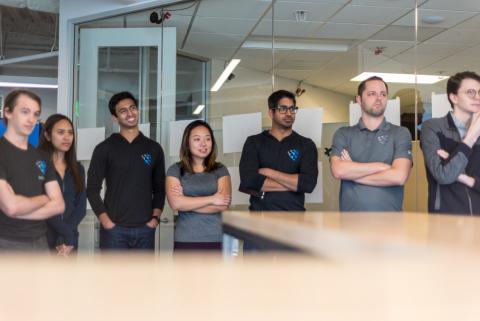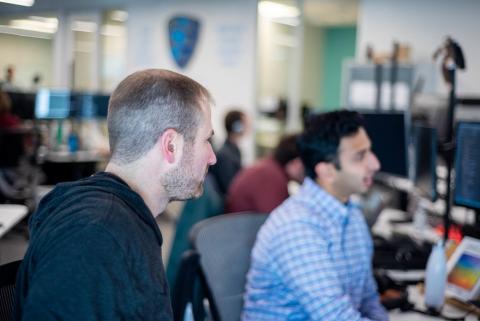[March 19, 2019]
Meet Our Leaders: A Conversation with Gabe Mayo
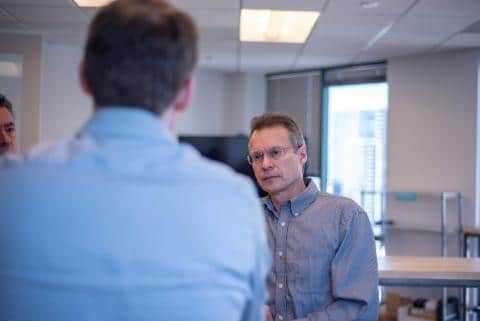
A conversation with Gabe Mayo, Shield AI’s Vice President of Hardware Engineering.
Why did you choose a career in engineering? What about the field interested you?
I can’t say that I chose a career in engineering; it chose me. I can’t remember a time when I wasn’t obsessed with knowing what was inside of things and how things work.
I knew I wanted to be an electrical engineer when I was 6 years old. I was fascinated with electricity — at the time it was wires and light bulbs and switches — and my fascination grew from there. The first time I was called an engineer or a problem solver was when I fixed my grandmother’s old record player when I was a child. It hadn’t worked for 2 months, and I just walked up to it, put the needle on the record, tinkered with the side, turned up the volume and all of a sudden it started working. My grandmother said, “He’s a genius!” and that’s when I became an engineer.
From then on, when I got a new toy, the first thing I had to do was take them apart. And it hasn’t changed. It still bugs me if I don’t know how something works. It keeps me up at night. Things are just incomplete if I don’t understand why something works.
What advice can you give about solving hard problems?
Brute force only gets you so far. When you use brute force to solve a problem there will always be a point where you need to do ten times as much work with one tenth of the necessary resources.
Instead, you should always strive to break the problem down to determine the essence of what you are trying to solve. If you are too entrenched in the brute force method and you don’t search for the essence of the problem, you will miss the bigger picture. For instance, you may work all day trying to determine an electrical engineering solution to a problem which doesn’t have an electrical solution — the solution is mechanical or the solution is chemical.
When solving tough problems, I’ve also found it useful to consider how nature solves the problem. I don’t think there is anything that we’ve done in engineering that nature hasn’t done better. Take artificial intelligence for example: we’re not even close to what nature has done in our brains. Nature has always done it better — I haven’t found a single example to the contrary.
Is that really true? Nothing in nature flies faster than a jet and the human brain can’t memorize as much information as an AI system.
We have amassed technology that outperforms natural examples in particular categories. From my perspective, the core engineering principles that we leverage are ones that we have borrowed from nature. The ideas of feedback, stability, optimization, flight, redundancy, energy storage, energy conversion, self-assembly, complex chemical process, and so many more, are the cornerstones of our technology. Perhaps we have or will eventually invent new mechanisms that are not based on natural example, but we are competing with billions of years of engineering, not only on earth, but the whole universe. I consider us modest students being gifted with beauty and wonder by nature itself.
What is the most important lesson you have learned over the course of your career?
It’s important to maintain your doggedness and enthusiasm — to maintain the willingness to approach something difficult and to stay with that complicated thing even when it’s really not working out.
It’s easy to go after the things that come together easily because you’re skilled at it. But stepping into something that’s unknown to you, that is going to stretch you, that is going to challenge you, is where all the real accomplishments lie. And that includes not just technical stuff, but with people, too. Staying within your comfort zone doesn’t build the relationship. Being comfortable doesn’t move forward the partnership.
What advice do you have for new engineers wanting to get into a hardware role?
People say, “follow your interests” but I would say, “cultivate your interests.” Begin to take ownership over something that you just can’t leave alone.
If you only follow your interests you may find that the thing you are interested in is maybe not your primary strength. But if you cultivate your interests, you can find something that complements your interest that is your primary strength. And thus you’ll find a career you are satisfied with. Then, even when you are working extra hours it will be fun — you will be working on something that interests you and that you are skilled at. You’re going to get to work with the thing that really motivates you.
And this extends beyond just engineers. For instance, say your interest is music, but you’re not the most talented at playing an instrument or singing. If you cultivate your interests you will find that you can still be in the music industry. You can be a composer or a producer or an accountant. It can still be fun and you can still be a primary contributor to it. So as you cultivate your interests you need to match your strengths, your skills, with that thing that you’re enamored with.
You have said that engineers are like artists at an artist colony. Can you elaborate on this theory?
Engineers like to present ourselves as very logical, very rational people. But the rational and the analytical part is really just a tool that we use. We like to tinker. We’re problem solvers. Our art is solving problems.
We are very proud of having solved the problems that we work on. If you talk to engineers, they will always be very excited to tell you about the thing that they discovered and how they did it. That’s the artist saying, “Look at my work, isn’t it beautiful?”
Engineers want to be nurtured in similar ways as artists do. We want a patron that lets us do our art without interference. If we don’t find that we’re going to pick up and go somewhere else. We’ll say, “This isn’t the place for me. It’s not letting me be creative. It’s not letting me solve the problems the way that I think that they should be solved.”
So, I think that engineering firms are a bit of an artist colony, where you put a whole bunch of people together and they’re each doing their art. They feed off of each other in the same way that some artists do. They compete with each other in the same ways. They really want their stuff to be the most clever. Not because they’re smart — again, smart is the tool. There’s this element of pride in this beautiful thing they created or the elegant solution that they devised.
Are there specific qualities to certain environments that foster this artist colony behavior more than others?
Engineers in general tend not to be the most social types, but we share this geeky thing that brings us together. We want to do our part and we want others to do the complementary thing so that our invention — our thing of beauty — fits into the larger solution and it gets used. It brings value and we feel reward in seeing our “baby” grow.
